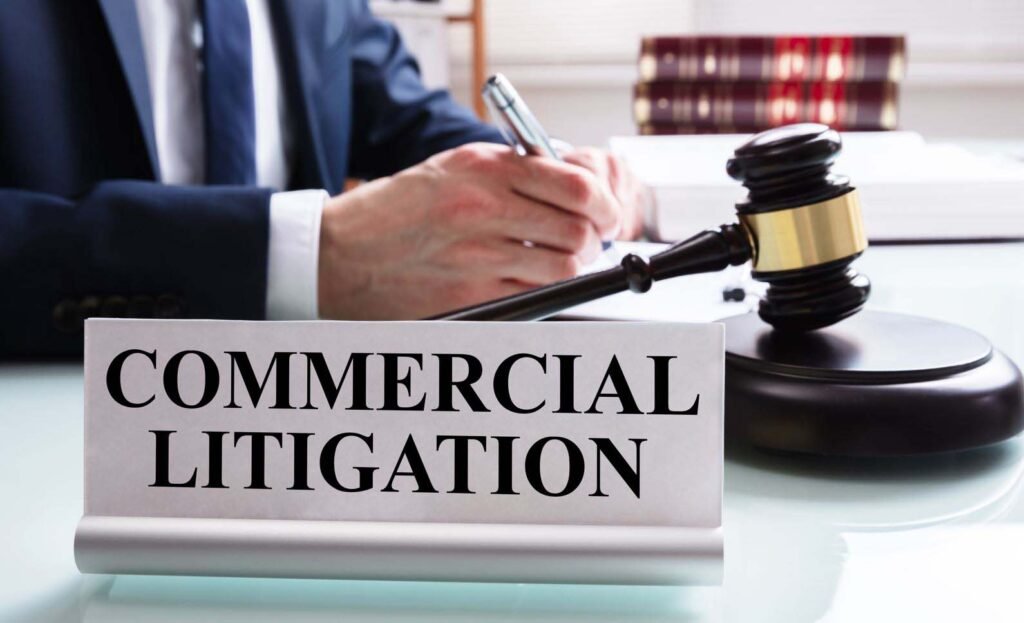Navigating the world of business can be challenging, especially when disputes arise. As a business owner, understanding commercial litigation is crucial. Commercial litigation involves lawsuits related to business conflicts. These could involve contract issues, partnership disputes, or intellectual property fights. Knowing what to expect helps you protect your business interests and make informed decisions.
Litigation affects your operations, reputation, and bottom line. It’s essential to approach these situations with knowledge and strategy. Being prepared can save time, resources, and stress. This guide equips you with key insights to handle potential litigation effectively.
If you’re ready to learn more, make sure to click here. It’s not just about resolving disputes but preventing them. A proactive grasp of commercial litigation helps safeguard your business now and in the future. Familiarizing yourself with these aspects empowers you to face challenges with confidence and ensures your business’s longevity and success.
Understanding Commercial Litigation
Commercial litigation involves legal disputes between businesses. It’s a broad category, covering various conflicts. These disputes often arise from contract disagreements, business torts, or shareholder issues. Each type of dispute requires a different legal approach.
It’s important to recognize the types of disputes that may lead to litigation. Knowing the common causes helps you anticipate and manage potential conflicts. Understanding the legal process and how it unfolds is also essential for effective navigation.
Common Types of Commercial Litigation
- Contract Disputes: Contracts form the backbone of business operations. Disagreements over terms or performance can lead to litigation.
- Partnership Disputes: Partners may clash over business decisions or financial matters, resulting in legal action.
- Intellectual Property: Protecting your ideas and creations is vital. Infringements often lead to courtrooms.
These disputes can significantly impact your business. It’s crucial to understand the stakes and prepare for potential outcomes.
Commercial Litigation Process
The litigation process can be daunting. Here’s a simplified overview:
- Filing a Complaint: The process begins when a plaintiff files a complaint, outlining the dispute.
- Response: The defendant responds, either accepting responsibility or contesting the claims.
- Discovery: Both sides gather evidence to support their positions. This phase is crucial for building a strong case.
- Settlement or Trial: Many cases settle before reaching trial. If not, the case proceeds to court, where a judge or jury makes the final decision.
Each step requires careful preparation and strategic planning.
Preventing Commercial Litigation
Prevention is always better than cure. Here are steps to reduce litigation risks:
- Clear Contracts: Drafting precise and comprehensive contracts prevents misunderstandings.
- Open Communication: Maintaining transparent communication with partners and clients reduces conflicts.
- Regular Reviews: Regularly reviewing your legal obligations helps identify potential issues early.
These proactive measures can save time and costly legal battles.
Costs of Commercial Litigation
Litigation can be expensive. Here is a comparison of potential costs:
| Type of Cost | Estimated Amount |
|---|---|
| Legal Fees | $10,000 – $500,000+ |
| Court Fees | $200 – $400 per filing |
| Settlement | Varies greatly |
Costs vary depending on the complexity of the case and the duration of legal proceedings.
Seeking Expert Advice
It’s wise to consult with legal experts when facing potential litigation. They provide guidance tailored to your situation. For more information, you can visit the United States Courts website to learn about the court system and processes.
Understanding commercial litigation is a necessary skill for business owners. Equipped with this knowledge, you can protect your business interests and ensure its continued success.

